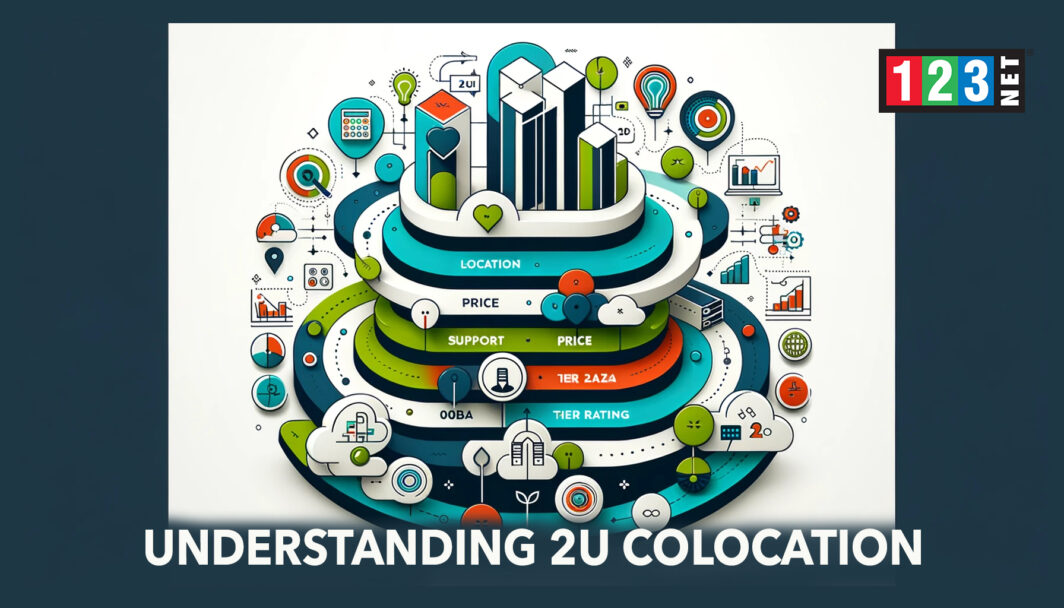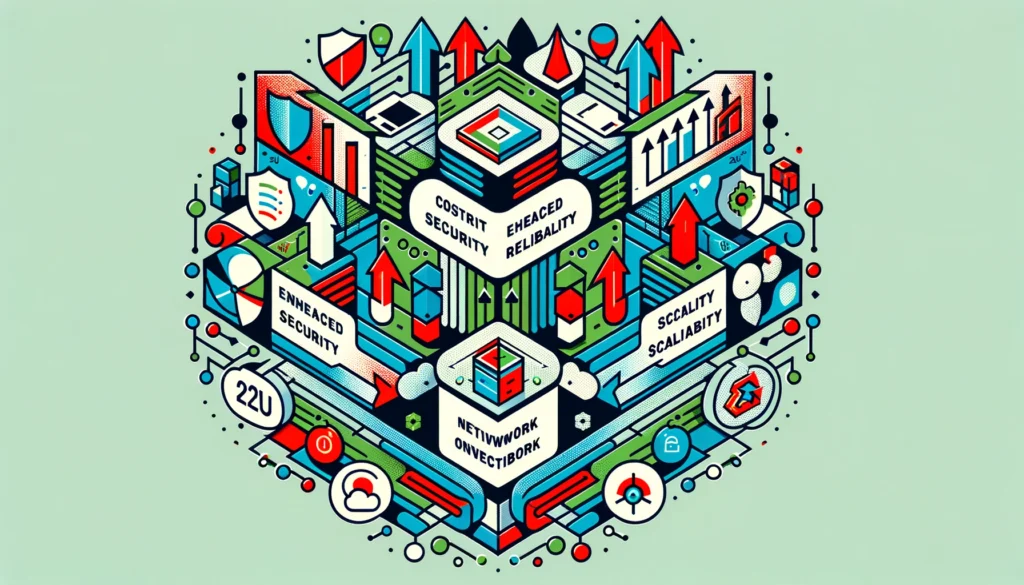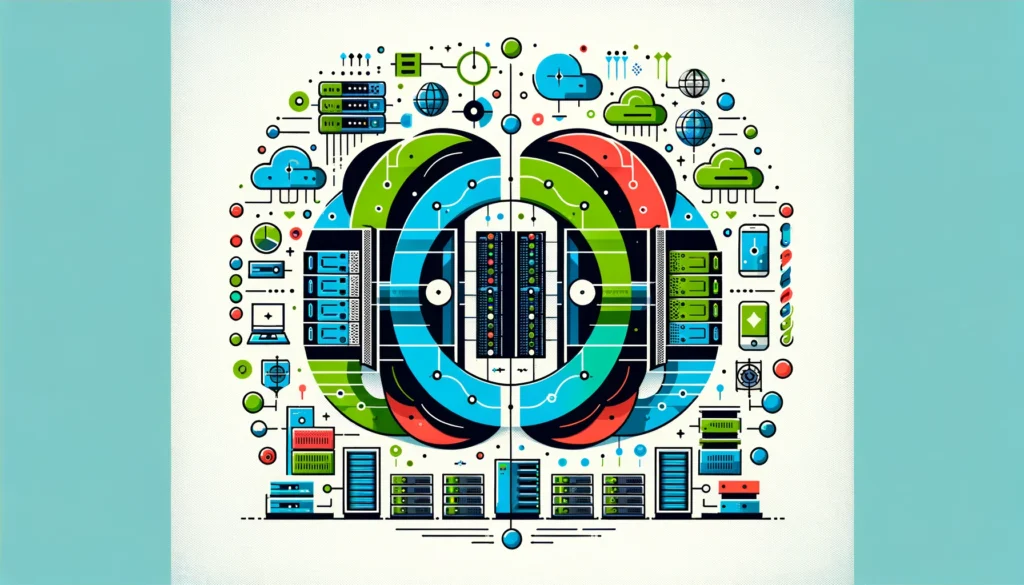
Introduction
In today’s fast-paced digital world, businesses, regardless of size, depend heavily on reliable IT infrastructure. This foundation is essential not only for smooth day-to-day operations but also for ensuring the security of vital data. This is maintaining constant availability of services. In response to these needs, colocation services, have risen in popularity. Among the various options available, 2U colocation stands out as a particularly attractive choice for many companies.
2U colocation strikes an appealing balance, offering sufficient space for hardware, robust performance, and cost-effectiveness. This makes it a compelling option for businesses that require more than the minimal server space. The advantages of opting for 2U colocation are manifold, including enhanced physical security, access to high-speed internet connections. This also involves the reliability of professional data center management.
When considering 2U colocation, businesses should carefully evaluate potential providers. Key factors to look into include the data center’s location, the quality of its infrastructure, and its security features. Choosing the right provider is crucial, as it can significantly impact the overall efficiency and reliability.
What is 2U Colocation?
2U colocation is a service where businesses rent space in a data center to house a server that occupies two units (U) in a rack. Each “U” represents 1.75 inches of vertical space, positioning 2U as a prime option for small to medium-sized enterprises (SMEs) that require greater power and storage than what a 1U server offers, but without the cost associated with bigger setups. This arrangement also includes access to essential facilities like power supply, cooling systems, network connectivity, and stringent security measures. All these services are crucial for the smooth operation of servers and are managed by the data center. 2U colocation is particularly appealing because it finds a middle ground between cost-effectiveness and functional capability. It is designed to meet specific business requirements efficiently, ensuring that SMEs can enjoy the benefits of professional data center services without the need to invest in excessive or underutilized resources. This makes 2U colocation a strategic choice for businesses looking to optimize their IT infrastructure.
Benefits of 2U Colocation
Cost-Effectiveness
Cost-effectiveness is a significant advantage of 2U colocation, as it allows businesses to share the extensive infrastructure costs with other tenants. This arrangement provides access to top-tier data center facilities without the substantial capital expenditure required to construct and maintain a private data center. Companies can enjoy high-quality services at a fraction of the cost, making it an economical choice for businesses of all sizes.
Security
Data centers prioritize security, investing heavily in comprehensive security measures to protect critical data. These measures include robust physical security protocols, advanced fire detection and suppression systems, and stringent cybersecurity practices. Such a multi-layered security approach ensures that sensitive information remains secure against various threats, providing businesses with peace of mind regarding their data’s safety.
Reliability
Reliability and uptime are crucial for maintaining business continuity. Data centers are equipped with redundant power supplies, cooling systems, and network connections, significantly reducing the risk of downtime. Depending on the Tier classification, from Tier 1 to Tier 4, data centers offer different levels of redundancy and fault tolerance. A Tier 4 data center provides the highest level of reliability, designed to ensure continuous operation even during most failures.
Scalability
Scalability is another critical feature of 2U colocation, accommodating business growth seamlessly. Companies can start with a modest 2U space and scale their IT infrastructure as needed, whether that involves acquiring more rack space or integrating additional services like managed services, based on the offerings of their chosen provider.
Network Connectivity and Bandwidth Allowance
Lastly, network connectivity and bandwidth are paramount in today’s digital landscape. Data centers boast robust network infrastructures, providing a plethora of connectivity options along with generous bandwidth allowances. This ensures businesses have fast and reliable access to their servers and applications, facilitating efficient operations and enhancing overall performance. Through 2U colocation, businesses can harness these benefits, supporting their evolving needs in a dynamic and competitive environment.
Choosing the Right 2U Colocation Provider
Choosing the right colocation provider is a critical decision that involves a careful examination of several vital aspects:
Location
Location is paramount when selecting a colocation provider. The data center’s proximity to your business can significantly impact latency, the time it takes for data to travel between the server and its destination. A closer location can reduce latency, enhancing the performance of your applications and services. Moreover, being near the data center makes it more convenient to access the hardware for maintenance or upgrades, ensuring quicker response times in managing physical infrastructure.
Price
Price is another crucial factor in the selection process. It’s important to fully understand the cost structure, which includes not only the initial setup fees and monthly rent but also potential additional charges. These extra costs can arise from power usage, bandwidth consumption, and any other specialized services you might require. A comprehensive cost analysis helps in budgeting accurately and avoiding unexpected expenses.
Support and SLA
Support and Service Level Agreements (SLAs) are essential for ensuring smooth operations. A provider with a responsive support team can make a significant difference in resolving issues efficiently. SLAs are critical as they outline the provider’s commitment to uptime, maintenance schedules, and disaster recovery measures. A clear, detailed SLA provides assurance of service quality and reliability, setting expectations for both parties.
Tier Rating
The Tier Rating of a data center indicates its infrastructure’s redundancy and fault tolerance. Data centers are classified from Tier 1 to Tier 4, with Tier 4 offering the highest levels of redundancy. The tier rating influences the data center’s ability to maintain operations during outages and its overall reliability. Businesses need to assess their requirements for redundancy and fault tolerance to select a data center tier that aligns with their operational needs and risk management strategies.
In conclusion, selecting a colocation provider requires a thorough evaluation of location, price, support and SLAs, and the data center’s tier rating. These factors together determine the suitability of a provider in meeting your business’s specific needs, ensuring the resilience, efficiency, and scalability of your IT infrastructure.

Pricing Expectations for 2U Colocation
The cost associated with 2U colocation is subject to significant variation, influenced by factors such as the data center’s geographical location, its tier rating, and the range of services provided. Typically, businesses are required to pay a monthly fee, which encompasses the essentials: rack space for the server, power supply, cooling systems, and basic network connectivity. This foundational package ensures that your hardware operates in an optimal environment, maintaining performance and reliability.
However, the base fee is just the starting point. Depending on your organization’s specific needs, there may be additional charges for enhanced services. These can include access to higher bandwidth to accommodate increased data transfer rates, additional IP addresses for your expanding network requirements, and various managed services. Managed services, in particular, can range from basic monitoring to comprehensive server management and security, tailored to reduce the workload on your in-house staff and improve operational efficiency.
Navigating through the pricing structure of 2U colocation services requires a transparent discussion with the provider about all potential costs. It is essential to have a clear understanding of what is included in the basic package. Moreover, given the competitive nature of the colocation market, there may be room for negotiation. Businesses have the opportunity to negotiate terms that better suit their financial constraints and operational needs. This can involve adjusting the level of services, negotiating better rates for power and bandwidth, or securing discounts for longer-term commitments.
In summary, while pricing for 2U colocation can vary widely, understanding the components of the cost and engaging in discussions with providers is crucial. This can help businesses find a solution that also aligns with their budgetary constraints. This careful evaluation and negotiation are key to leveraging colocation as a cost-effective component of a business’s IT strategy.
Setting Up Your 2U Colocation Space
Preparing your server for colocation is a critical process that requires careful planning to ensure compatibility with both the data center’s infrastructure and your specific business needs. This preparation is not just about physical compatibility; it extends to optimizing the server’s performance, ensuring resilience against failures, and safeguarding your data through comprehensive security measures.
Configuring Hardware
Configuring your hardware is the first step in this preparation. This involves selecting the right components that can handle your workload efficiently while being robust enough to withstand the data center environment. Factors such as processor speed, memory capacity, and storage solutions must be aligned with your performance requirements. Additionally, considering redundancy in critical components like power supplies and network cards can greatly enhance the resilience of your server.
Remote Management
Remote management tools play a vital role in maintaining server health and managing issues from afar. Tools like Intelligent Platform Management Interface (IPMI) allow for out-of-band management. This helps with enabling you to monitor, update, and troubleshoot servers without being physically present at the data center. This capability is crucial for timely interventions, especially in scenarios where direct access to the server is not feasible.
Security Measures
Security measures are paramount in protecting your server and the data it holds. Implementing firewalls to block unauthorized access and using SSH key authentication for secure logins are fundamental steps. These security layers help in mitigating potential threats and ensuring that your server remains accessible only to authorized personnel.
Disaster Recovery
Disaster recovery planning is another essential component of server preparation for colocation. This involves creating strategies to recover data and restore services in the event of hardware failure, data corruption, or other catastrophic events. Effective disaster recovery plans include regular data backups, replication to a secondary location, and clear recovery procedures. Ensuring that your data remains safe and recoverable in any scenario is vital for business continuity and the protection.

Common Challenges and Solutions
Despite its benefits, colocation comes with challenges. This is such as managing hardware failures, optimizing bandwidth usage, and adhering to the data center’s policies. Solutions include proactive monitoring, choosing flexible providers that offer scalable solutions. Also it involves maintaining clear communication with your colocation provider to address any issues promptly.
FAQs
- What is the average cost of 2U colocation? A: Costs vary, but businesses can expect to pay anywhere from $50 to $200 per month, depending on services and location.
- How do I choose between managed and unmanaged colocation services? A: Managed services offer additional support and maintenance, ideal for businesses without a dedicated IT team. Unmanaged services are more cost-effective for those with the capability to manage their servers.
- Can I upgrade my colocation space in the future? A: Yes, most providers offer scalable solutions, allowing you to expand your colocation space as your business grows.




